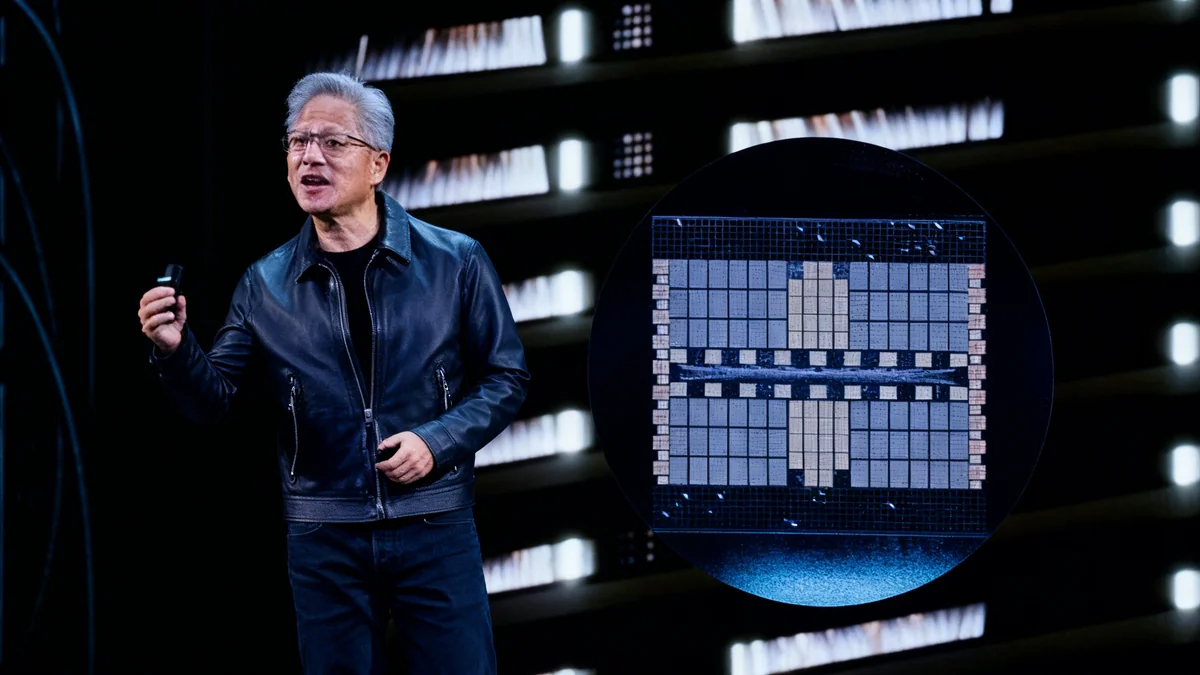Google has officially announced Gemini Enterprise, a new artificial intelligence platform designed to integrate Google's AI capabilities into business workflows. The announcement was made by CEO Sundar Pichai and Cloud CEO Thomas Kurian at the company's "Gemini at Work" event, positioning the new service as a comprehensive tool for employees to interact with company data, documents, and applications.
The platform aims to move beyond simple chatbots by providing a conversational interface that allows for the creation and deployment of custom AI agents. Early adopters, including HCA Healthcare and Best Buy, are already reporting significant efficiency gains and improvements in customer service operations.
Key Takeaways
- Google has launched Gemini Enterprise, an AI platform for businesses to integrate AI into daily operations.
- The platform allows employees to chat with company data and build custom AI agents.
- Early results from companies like HCA Healthcare and Best Buy show major improvements in efficiency and customer service.
- The launch is part of Google's broader full-stack AI strategy, encompassing infrastructure, research, models, and platforms.
- Google Cloud's AI products are a significant growth driver, with the division surpassing a $50 billion annual revenue run rate.
Defining Gemini Enterprise
Google presents Gemini Enterprise as more than a conversational chatbot. It is a platform intended to serve as a central hub for AI within an organization. The system is built on Google's most advanced Gemini models and is designed to securely connect with a company's internal data sources.
This integration allows employees to ask questions and receive answers based on their company's documents, databases, and business applications. The core functionality centers on creating a secure, contextual AI experience for every employee.
Core Capabilities and Features
Gemini Enterprise offers several key features for businesses. Users can engage in conversational queries with their data, effectively transforming how information is accessed within a company. The platform also includes tools for building and deploying custom AI agents tailored to specific tasks or workflows.
In addition to custom builds, Google provides a suite of pre-built agents to handle common business functions. The system is designed to understand both the company's information and the individual employee's context at work, aiming to provide more relevant and useful assistance.
A Strategic Move in Enterprise AI
The launch of Gemini Enterprise comes as major technology companies compete to provide AI solutions for the corporate world. By offering an integrated platform instead of standalone tools, Google aims to embed its AI deeply into the daily operations of its customers, making it an indispensable part of their digital infrastructure.
Early Success Stories from Major Companies
Before its public launch, Gemini Enterprise was piloted by several large corporations, which have reported notable results. These early case studies highlight the platform's potential impact on different industries.
HCA Healthcare Improves Patient Handoffs
HCA Healthcare, a major healthcare provider, is testing a solution powered by Gemini to streamline the critical process of patient information handoffs between nursing shifts. The system automates the creation of handoff reports, which are then reviewed for accuracy by nurses before their shift ends.
"The automated handoff report is always reviewed by nurses for accuracy before they end their shift, and is estimated to save millions of hours annually," Google stated in its announcement.
Best Buy Enhances Customer Service
Retail giant Best Buy has utilized the technology to transform its customer service operations. According to Google, the implementation has led to a 200% increase in customers who self-serve to reschedule deliveries. Furthermore, the system has resolved 30% more customer questions on topics such as price matching and recycling programs.
AI Adoption Within Google
Google also leverages its own AI tools internally. The company reports that nearly 50% of all new code written at Google is now generated by AI before being reviewed and accepted by human engineers. This practice is applied across various departments, including operations, marketing, and supply chain management, to increase speed and efficiency.
Google's Comprehensive AI Strategy
Gemini Enterprise is the latest product to emerge from Google's "full-stack" approach to artificial intelligence. This strategy involves developing capabilities across the entire AI ecosystem, from foundational hardware to user-facing applications.
This approach is a key factor in the growth of Google Cloud, which surpassed a $50 billion annual revenue run rate in the second quarter. AI products are a major driver of this growth, with 65% of Google Cloud customers now using them.
The Four Pillars of Google's AI Stack
- Infrastructure: The foundation is Google's global infrastructure, which supports products like Search and YouTube. This includes NVIDIA GPUs and Google's custom-designed Tensor Processing Units (TPUs). The upcoming "Ironwood" generation of TPUs is expected to offer a 10x performance improvement.
- Research: Teams like Google Research and Google DeepMind are responsible for fundamental breakthroughs. The company highlighted recent Nobel Prizes awarded to team members for work in physics and chemistry, underscoring the depth of its scientific talent.
- Models: Google's portfolio of foundation models is led by the Gemini family. Gemini 2.5 Pro has consistently ranked high on performance benchmarks. The company also offers specialized models like Veo for video and Imagen for images, with over 13 million developers building on its generative models.
- Products and Platforms: The final layer brings AI to billions of users through products like Google Workspace and AI Overviews in Search. The company reported processing 1.3 quadrillion monthly tokens across its services, a significant increase from previous figures.
With Gemini Enterprise, Google is providing businesses with a direct entry point to this extensive stack of AI innovations, aiming to accelerate the adoption of artificial intelligence in the corporate world.





